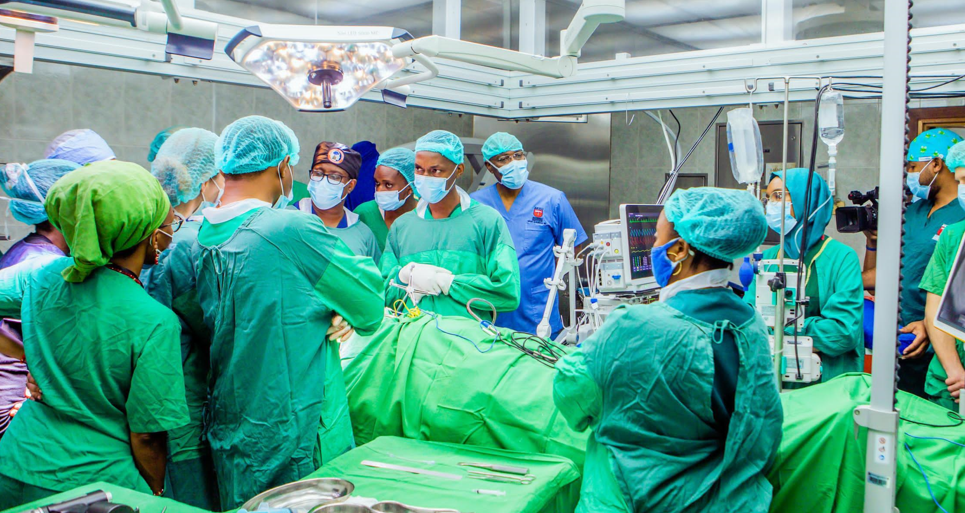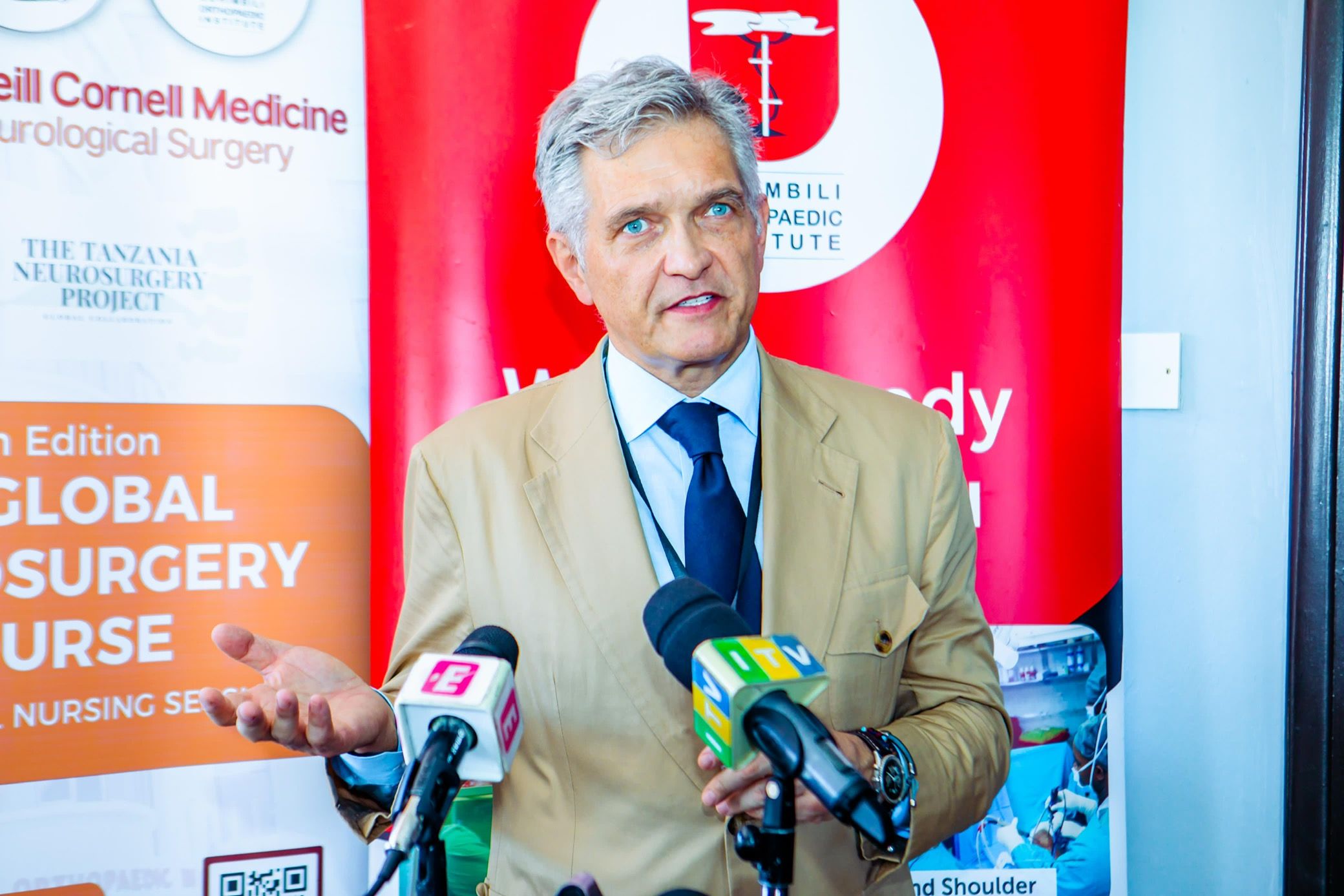
Weill Cornell Medicine’s Department of Neurological Surgery recently participated in the 11th Annual Global Neurosurgery Course at the Muhimbili Orthopaedic Institute (MOI) in Tanzania. Dr. Roger Härtl, director of spinal surgery and founder of the Weill Cornell Tanzania Neurosurgery Project, and Dr. Caitlin Hoffman, a leading pediatric and craniofacial neurosurgeon, joined an international team of experts to advance neurosurgical education and patient care in the region.
The course featured in-depth lectures covering degenerative spine disease, craniosynostosis, global neurosurgery, research methodologies, neurotrauma, and epilepsy. A parallel nursing course reinforced the importance of multidisciplinary care. Following the lectures, participants engaged in hands-on training and collaborative patient care in the operating room.
This year’s program achieved several significant milestones:
First 3D navigated brain tumor resection: Tanzanian surgeons, in collaboration with Drs. Julie Woodfield, Christopher Bonfield, and Caitlin Hoffman, successfully performed MOI’s first 3D navigated brain tumor resection. This groundbreaking procedure was made possible through Brainlab’s donation of a state-of-the-art navigation system.
First minimally invasive transforaminal lumbar interbody fusion (MIS TLIF): The Tanzanian team, under the guidance of Dr. Sheeraz Qureshi from the Hospital for Special Surgery, completed their first MIS TLIF procedure, supported by a generous implant donation from Globus Medical facilitated by research fellow Dr. Chibuikem Anthony Ikwuegbuenyi.
First neuromonitoring for complex cervical cases: With support from Drs. Richard Assaker, Jose Maria Torres Campa-Santamarina, Christopher Bonfield, and neurophysiologist Noah Willett, Tanzanian surgeons conducted their first neuromonitoring case with pre-flip baselines for complex cervical spine procedures. This advancement was facilitated through neuromonitoring equipment donations from Cadwell, with support from Lynn Russell and Lori Kaufman.
RealSpine Training & Minimally Invasive Spine Surgery Advancements: Dr. Härtl led a RealSpine training session supported by Realist to enhance hands-on learning. He also worked with the Tanzanian team to expand their experience in tubular minimally invasive spine (MIS) surgery. Additionally, the program benefited from the donation of the MaxView tubular imaging system from Viseon, enhancing visualization in minimally invasive spinal procedures.
Dr. Hoffman, who specializes in pediatric and craniofacial neurosurgery, emphasized the transformative impact of these educational efforts. “Each year, we witness incredible growth in the skill and confidence of the Tanzanian surgeons. Seeing them perform procedures that were once out of reach—such as 3D navigated brain tumor resections—demonstrates the power of global collaboration. This is about creating sustainable neurosurgical care that will benefit patients for generations to come.”

Roger Härtl, MD Hansen-MacDonald Professor of Neurological Surgery Director of Spinal Surgery
Dr. Härtl also acknowledged the ongoing contributions from industry partners, including DePuy Synthes, which has consistently provided implants for the program, facilitated by Mike Verrelli.
“We are immensely grateful to the exceptional faculty and participants from across Africa, Europe, and North America,” Dr. Härtl said. “This program is not just about knowledge transfer—it’s about building long-term neurosurgical capacity in Tanzania. We look forward to continuing this work in the years ahead.”
The Global Neurosurgery Course, a cornerstone of the Weill Cornell Tanzania Neurosurgery Project, continues to exemplify Weill Cornell Medicine’s commitment to expanding access to high-quality neurosurgical care worldwide.
Special thanks to Dr. Marta Garvayo, the current global neurosurgery fellow, for her help organizing this great course, which made these historic achievements possible.